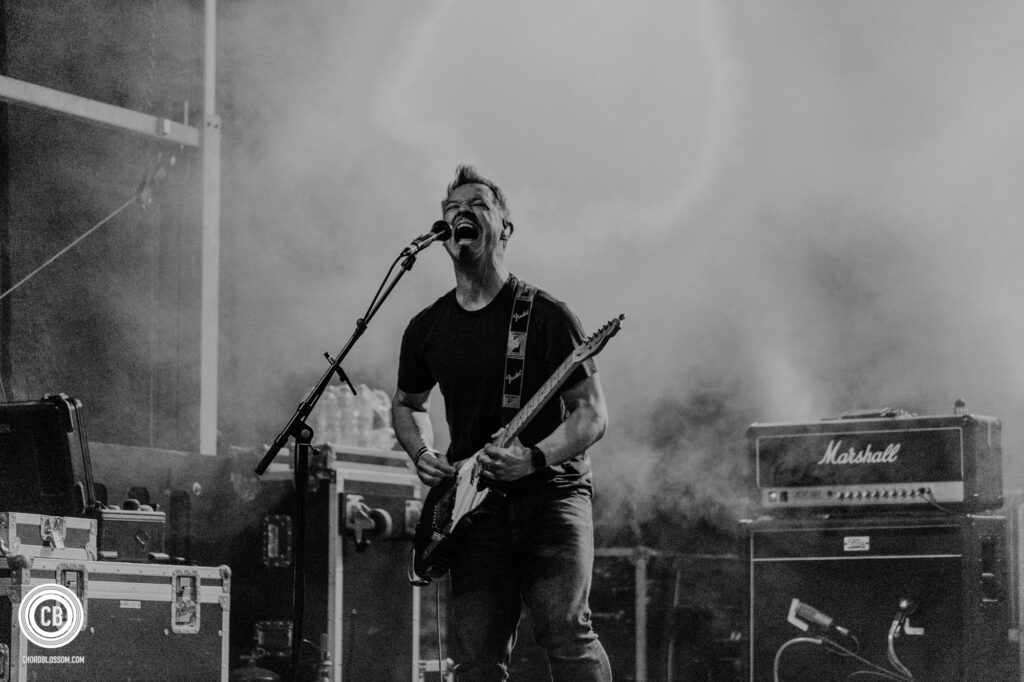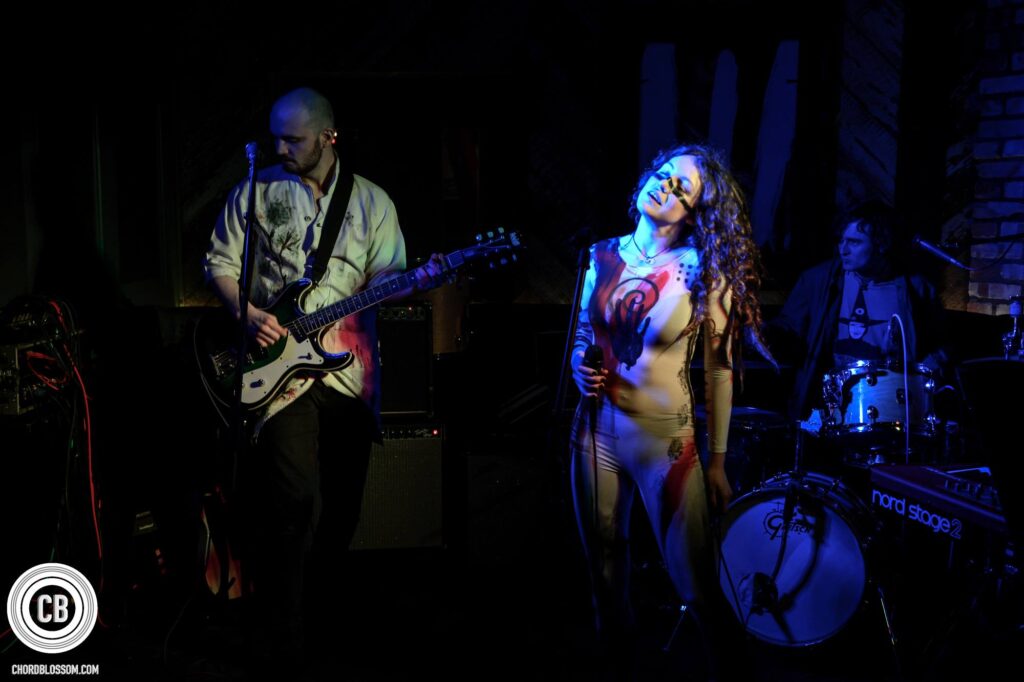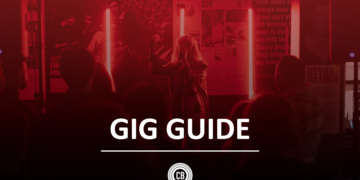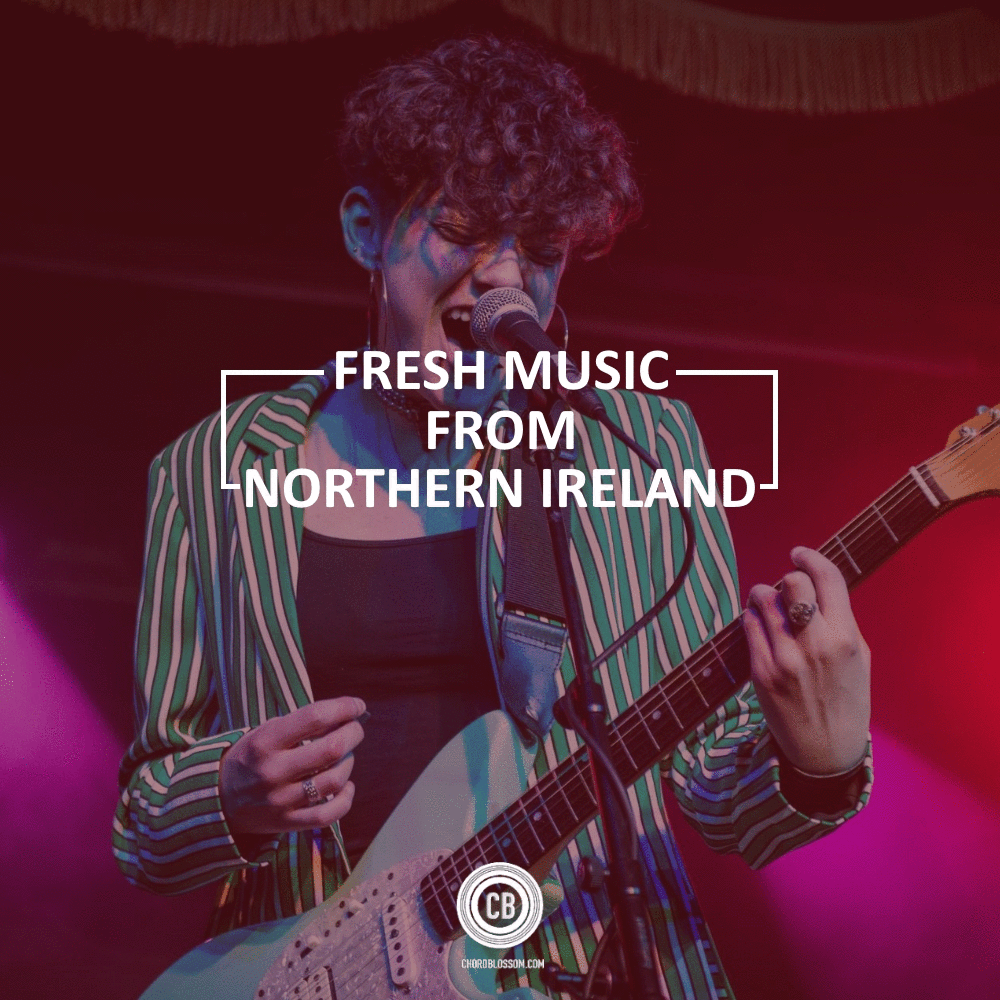Nothing seems to be able to stop our local musicians. As they rise to international stages, they overcome even more in their path today than they ever have done before. They face COVID hangovers, sky-high cost of living, post-Brexit paperwork and a war in Europe.
But they still power on to cross the seas and re-establish themselves during the festival season. Amy Montgomery and Cahir O’Doherty from New Pagans walk me through the difficulties they’ve faced while touring across the UK and EU.
“It’s tough, but it hasn’t stopped me” Amy and Cahir certainly did not downplay the number of hoops they had to jump through when preparing to take to the road. “Touring with so many rescheduled shows is so much harder,” Amy explained. “Trying to get onto line ups with such an influx of artists has been really quite difficult.” The relentless on-again-off-again nature off the process is definitely tough on Amy and her team, and her “compassion for every aspect of the industry” is clear to see.
She tells me how she has had to learn to “stand up for herself more.” “I’ve had to take pay into consideration more” she explains, “not placing money before my passion, but just taking it into consideration more.”
Not only is booking dates a strained task these days, but the paperwork and fees have been a pain for Cahir, both in New Pagans and as a freelance guitar tech.
The list of extra fees, tolls and costs he recited was never-ending, everything from the Carnet form for selling, to fuel bills, manager fees, van hire and tolls. “Only a few years ago, if the artist was lucky, you might be able to make ends meet,” Cahir told me. But now, “this imbalance is becoming an issue. As a support band, you just can’t take slots without going into debt.”
Once on the road, Amy retold sheer hilarity of watching her band try and get through passport control. “With some in the band having a British passport, an Irish passport and even an American passport” she laughs, “it brings all the troubles.” Cahir told me of New Pagan’s running joke from their last European tour. “When organising our last tour, I joked with the guys that it was just typical. You can’t tour for years and when you do, there is a bloody war hiking prices up.” Since then, Cahir told me that New Pagans now approach any problem with a simple “That’s typical!” shared between the band.
Recurring Themes
It was really interesting to see that aside from actually booking a gig, the recurring issue both Cahir and Amy shared, was a such strong frustration for the cost of merchandise fees. Amy retold her experience of being met with 20% merchandise fees at a European festival. “I voiced my opinion so much so that I got to the point I would refuse to put my merchandise on the stall.”
It’s obvious Amy felt that “festivals are taking a lot more commission than necessary.” The anger she felt towards these high fees was so clear in her voice. She described how she protested the charges and “sold my merch at the side of the stage” after explaining to the audience the truth of the situation. “I’m all for keeping the mystique of the inner workings of a festival but sometimes those coming deserve to know what’s going on, particularly in these times.”
“When fees were decent” Cahir explained, “merchandise was the only way for a band to make money.” Cahir experienced merchandise fees of 45% in recent years and described his shock having “Never experienced anything like that.” To hear these figures from Cahir and Amy, really illustrated the extent of the problem. It is saddening to hear how normal this is for artists across the country. On asking both Cahir and Amy what they saw as the solution, they both sought different answers.

Cahir’s Solution
“More artists need to get serious about the business side of things” was Cahir’s solution.
“Bands are very reluctant to rock the boat” as they’re already in “a precarious position.” But he explained “they have nothing to lose” because “if all artists stood together these companies wouldn’t have a leg to stand on.”
It was all about the “comradery” for Cahir as he described how angry he was that artists are taken advantage of in this way. “I think there is a lot of support, but it’s the fact this has to exist is the problem.”
“Bands are very reluctant to rock the boat” as they’re already in “a precarious position.” But he explained “they have nothing to lose” because “if all artists stood together these companies wouldn’t have a leg to stand on.”
“There is a lot of money being made, but there is a lot of greed, a lot of corporate influence.” “As a guitar tech, I get contracted and paid, but as a musician…? As a musician I have yet to feel I’ve been paid, and I’ve been in this industry for decades.”

Amy’s Solution
“Before all of this if I hadn’t already carved my reputation and my music career it would be a lot more difficult right now.” Amy told me how she “really feels for artists starting out right now.”
“It must be really hard to get fees for gigs to make the journey worth it, especially with no fan base.” Her passion for the issue was clear.
“When you’ve put so much time effort and money into a festival, it comes to a point that you have to stand up and say that something isn’t fair.”
When I asked if she saw a solution to the difficulties faced by touring bands, her response was simple.
“If enough artists speak up about this topic maybe that will draw attention of the people in power.”
And Amy illustrated that the fans and supporters had a role to play in helping their favourite artists through the difficult times.
“If you enjoy the arts, you need to support the arts. Buy merchandise directly. Buy tracks online instead of streaming constantly. Come to shows to keep it all going.”








